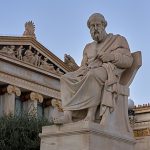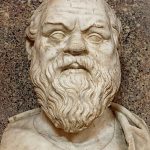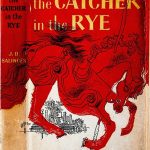Aristotle’s works cover a wide range of topics, including metaphysics, ethics, politics, and natural philosophy.
Philosophers: 3: Plato
In Athens, Plato opened his own school, the Academy, which was the first known institution of higher learning in the Western world.
Philosophers: 2: Socrates
Socrates’ most famous work is probably his “Apology.” This is an account of his defence against charges of “corrupting the youth” and “not believing in the gods of the state.” It is also an exploration of the nature of justice and ideal life.
Philosophers: 1: Jean-Paul Sartre
Sartre argued that we must accept our freedom and use it responsibly in order to create meaning in our lives, believing we should not rely on external factors, such as religion or tradition, to dictate our choices.
The Six Thinking Hats
The Six Thinking Hats are helpful in that they encourage you to think more flexibly and critically.
The Importance Of Asking Questions
When we ask, we open up to dialogue between ourselves and others. It encourages collaboration and can help us gain beneficial new perspectives.
The Role Of Reflection In Learning
Reflection will help the student both identify which areas they can improve and recognise their achievements, and ultimately provide a greater sense of confidence in their abilities.
Developing A Learning Plan
Developing a learning plan is essential for staying organised and achieving your goals.
J.D. Salinger: A Literary Icon
The Catcher in the Rye is perhaps Salinger’s best-known work, telling the story of a disillusioned teenager struggling to make sense of the world.
Remote Learning Study Tips
Set aside specific times of day for studying, and create a plan for how you will use your time. This will help you stay focused and motivated. Keep track of all your assignments, deadlines, and resources in one easy-to-access place.








